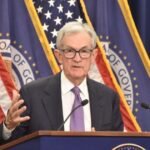With a 10-point welfare manifesto released ahead of the February 8 elections, the Pakistan People’s Party (PPP), the first major party to unveil its election manifesto, has brought attention to its economic aspirations in the unfolding drama of the 2024 elections.
This manifesto, which outlines a number of policy recommendations intended to promote inclusive growth, lessen inequality, and advance general prosperity, acts as a road map for the PPP’s future goals. But the key question that’s on everyone’s mind is this: Will the PPP be able to successfully convert these audacious pledges into concrete economic realities?
The 10-point welfare plan that PPP Chairman Bilawal Bhutto-Zardari outlined last month to launch his election campaign is a summary of his long electoral platform.
If his party wins the next national elections, he said, the PPP’s electoral platform will assist in addressing the urgent problems of inflation, unemployment, and poverty.
The following is a summary of the promises made by Bilawal’s party in the event that they were elected.
Earners’ actual income will double, with 8% annual growth
Every district will have green energy parks; the impoverished will receive 300 units of free solar energy.
Encouraging everyone to receive a higher education by initiating programs
Health care is free for everyone in Pakistan.
Three million homes for the underprivileged and flood victims
Ghurbat Mitao: broaden the BISP’s purview and add more social programs
Khushhaal Kisaan: “Hari Card” and a BISP-like scheme for farmers
Benazir Mazdoor Card “Youth Card” for unemployed youth provides enhanced help for laborers.
Since 2008, PPP has continuously been elected to power in Sindh, making it one of the biggest political parties in Pakistan. Few people, nevertheless, are pleased with their performance.
2008 saw you not being a “good steward of economy.”
Many experts referred to PPP’s five-year run from 2008 to 2013 as not just “bad,” but “dismally bad,” calling it the worst economic performance of any administration since independence.
During the PPP government, the trade imbalance that had already begun to rise during the presidency of General (retd) Parvez Musharraf expanded much more.






